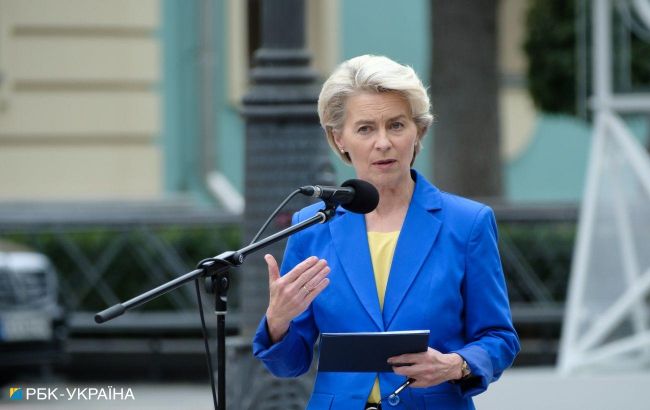Von der Leyen proposes US LNG for EU to replace Russian gas
 Photo: Ursula von der Leyen, President of the European Commission (Vitalii Nosach, RBC-Ukraine)
Photo: Ursula von der Leyen, President of the European Commission (Vitalii Nosach, RBC-Ukraine)
European Commission President Ursula von der Leyen, during a conversation with Donald Trump, who won the US presidential election, proposed increasing shipments of American liquefied natural gas (LNG) to the EU instead of relying on energy supplies from Russia, according to Voice of America.
During the phone call, von der Leyen highlighted the importance of constructive cooperation between the European Union and the United States.
She told reporters in Budapest that common interests, for example, were one of the topics they had touched on. She wouldn't say they discussed it, but she mentioned that the LNG issue came up in her conversation with Trump.
The European Commission president noted that Europe still receives much LNG from Russia.
Von der Leyen suggested that the issue could be addressed in the context of the trade imbalance between the United States and the EU, asking why not replace it with American LNG, which is cheaper for them and lowers energy prices.
Issues of Russian gas imports to Europe
Last year, Russian gas accounted for 15% of the EU's imports, compared to around 45% in 2021. Additionally, the contract signed at the end of 2019 between Ukraine's Naftogaz and Russia's Gazprom for gas transit through Ukraine expires at the end of this year. Ukraine has already stated it will not extend the agreement.
Despite European countries' efforts to reduce dependence on Russian gas, Russia once again became the top supplier in May, surpassing the United States for the first time in nearly two years.
Read more about why this happened and how the EU plans to target Russian revenue from LNG supplies, in RBC-Ukraine's article.
Earlier, it was reported that the EU intends to ban the transshipment of Russian LNG at European ports as part of a new sanctions package against Russia.
Additionally, in August, it was revealed that the French parliament aimed to ban imports of Russian LNG.
However, as Moscow is still one of the top suppliers, the EU's goal of cutting off from Russian energy by 2027 is hard to achieve. At the end of September, a Bloomberg article, translated by RBC-Ukraine, explained why Europe cannot break free from Russia's gas dependence.

